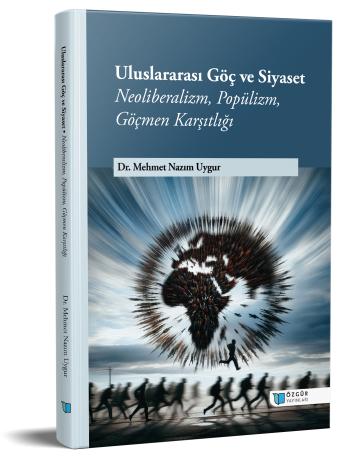
International Migration and Politics Neoliberalism, Populism, Anti-immigration
Synopsis
Migration remains a contentious issue in contemporary societies and continues to shape the global political agenda. This book offers a comparative analysis of the impact of anti-immigrant sentiments and policies on both Anglo-Saxon and Continental European traditions. Delving into the political, social, and economic dimensions of migration, the book aims to shed light on the causes, consequences, similarities, and differences of anti-immigrant movements within these two traditions. To analyze the influence of anti-immigrant narratives on public opinion, political discourse, and policymaking, the book draws upon an extensive review of scientific literature. Special attention is given to the rise of populist far-right parties and their role in fueling anti-immigrant sentiments. Focusing on neoliberalism, globalization, and the inequalities these phenomena generate, the book also discusses their impact on current migration crises and xenophobia. To identify the political effects of anti-immigrant attitudes, empirical analyses were conducted using data from the World Values Survey (WVS), the European Values Study (EVS), and the Global Party Survey (GPS). The book identifies key agitation factors contributing to the growth of anti-immigrant movements, including economic grievances, cultural anxieties, security concerns, and perceptions of racial threats. Additionally, the role of the media and political rhetoric as tools of agitation in shaping public opinion and perpetuating anti-immigrant narratives is emphasized. The findings indicate that neoliberal globalization plays a significant role in framing migration as a crisis. Inequalities and anxieties created by the neoliberal order are often channeled into scapegoating immigrants, with the media and far-right actors serving as intermediaries in this process. In Continental European countries where the welfare state remains intact, unlike Anglo-Saxon countries where neoliberalism has taken hold, anti-immigrant parties have not become mainstream. However, these parties have influenced mainstream politics, prompting mainstream political actors to adopt the populist rhetoric of anti-immigrant parties. Moreover, the results show that agitation factors such as economic grievances, security concerns, cultural reactions, and racial threat perceptions, facilitated by agitation tools such as far-right parties and the media, are effective in fostering anti-immigrant sentiments and increasing support for far-right parties. In this way, the book reveals the dynamics underlying hostile attitudes toward immigrants and offers several recommendations to counteract such attitudes.

